National Assembly delegates are concerned that forest damage continues to occur, while the green color of forests in some localities is not "truly sustainable".

November 4, continue the program At the 8th session, the National Assembly discussed in the hall the results of the implementation of the 2024 socio- economic development plan and the expected 2025 socio-economic development plan.
The green color of forests in many localities is not really... sustainable.
Presenting his views to the National Assembly, delegate Nguyen Lan Hieu (National Assembly Delegation of Binh Dinh Province) said that currently, the green color of forests in many localities is not really sustainable when they are mainly acacia and eucalyptus - trees with low soil retention capacity and short exploitation cycles. The delegate recommended changing the way of doing things, consulting domestic and foreign experts and scientists to implement forest planting in each locality, each different terrain and geography.
In addition, it is necessary to increase the planting of native and perennial trees; if economic exploitation is still needed, it is possible to plan areas for growing production trees below, and perennial and native trees on the top of the mountain.

Regarding the issue of resource exploitation, especially projects in core zones and biosphere reserves, delegates emphasized the need for careful review and objective and impartial assessment of environmental impacts.
“Especially when scientists have warned, we must be careful. The exploitation of natural wood needs to stop; propaganda needs to be done to change the Vietnamese people's preference for rosewood beds, cabinets, and vases made from natural solid wood; we need to strictly punish even the smallest acts of environmental destruction, such as planting trees that are still in their original packaging or cutting down trees that can still be saved to ask for funding for new planting,” delegate Nguyen Lan Hieu emphasized.
Also interested in Regarding the issue of forest protection, delegate To Van Tam (National Assembly Delegation of Kon Tum Province) commented that in recent years, we have achieved many achievements in this field, increasing the forest coverage rate to 42%. However, forest damage continues to occur and is at risk of increasing. Data shows that from 2011 to now, the area of damaged forest is estimated at more than 22,800 hectares. Of which, about 13,000 hectares of forest have been burned, the rest is due to illegal logging.
Delegates are concerned that forest damage has caused many serious consequences such as: loss of biodiversity, reduction of natural and cultural values of forests, climate change, soil erosion and is one of the factors of extreme and unusual weather. Illegal deforestation is still a hot issue that needs to be thoroughly resolved. The Government needs to further strengthen forest management and protection, and thoroughly handle illegal deforestation.

From the above issues, delegates suggested that the National Assembly and the National Assembly Standing Committee should monitor afforestation and replacement afforestation. On the Government side, it is necessary to evaluate the effectiveness of forest cover on biodiversity, forest environment, and the impact of climate change prevention and control, drought, landslides, etc. At the same time, strictly control economic and social development projects that involve forest conversion; have effective afforestation plans before granting forest clearance permits.
Agreeing, Delegate Nguyen Van Thi (National Assembly Delegation of Bac Giang province) said: In the current situation of increasingly profound climate change and increasingly fierce and unusual natural disasters, the National Assembly and the Government need to have policies that pay more attention to forest protection and development, especially upstream protection forests.
There is a need for solutions to effectively manage and use water and mineral resources.
Participating in giving opinions on resource management, environmental protection, natural disaster prevention and response to climate change, delegate Duong Khac Mai (National Assembly Delegation of Dak Nong Province) said that there needs to be comprehensive solutions both in the short and long term to exploit and use water resources effectively and sustainably, thereby ensuring water security. In fact, Vietnam has up to 63% of its water resources coming from outside the territory and rainwater is sometimes abundant and sometimes lacking due to seasonal distribution, some localities do not have storage solutions.

In addition, the delegate also pointed out that the situation of damming for irrigation, hydroelectricity, filling lakes, rivers and streams for urban development, industrial zones, tourism, services... has led to most of the main rivers in Vietnam being polluted at different levels. Not to mention the behavior of some upstream countries affecting the water source flowing into Vietnam is a reality and also a big challenge for the issue of water security of our country in the short and long term.
Therefore, “fresh water needs to be considered a special resource, it is the source of life,” delegate Mai emphasized.
Concerned about the management, exploitation and economical use of minerals, delegate Pham Van Hoa, (National Assembly Delegation) of Dong Thap province, said that the Law on Geology and Minerals, expected to be passed by the National Assembly at the 8th session, has amended and supplemented many shortcomings in state management, aiming at effective exploitation, protection and use. The delegate affirmed that minerals are valuable resources of the country, most of which are not regenerated and developed but are increasingly depleted, requiring management, exploitation and economical use, contributing proportionately to the state budget, contributing to the important development of the country.
However, in practice, many places still have issues that need to be thoroughly researched, because minerals are "delicious bait" that those who know how will exploit thoroughly, regardless of the consequences, as long as it is beneficial to them. Many valuable minerals are mixed in the soil and rocks, so organizations and individuals take advantage of loopholes in the law in management to circumvent the law, exploiting these rare goods together with common materials for consumption, without being detected.

In addition, the illegal exploitation of precious minerals in some places is still being carried out by the authorities. On the other hand, the declaration of the amount of recovered mineral ore depends on the self-awareness of organizations, businesses and individuals, which is very difficult for state management agencies to control. Not to mention the mineral mines licensed for exploitation under the request-grant mechanism, which also causes loss of state budget revenue.
Delegates are concerned that in mountainous areas, there are minerals such as soil, rock, coal slag mixed with precious minerals that have not been exploited and discarded, causing waste. In some places, they are piled high, posing a risk of landslides and environmental pollution, threatening the lives and health of people, while there is not enough soil and rock for construction projects to use.
Another issue, mentioned by the delegate, is that the transport infrastructure has been approved by the National Assembly and gradually implemented, but implementation in localities is difficult. The pressure to use common gravel for filling, the possibility of material shortage is very large, will affect the construction progress of projects and works, but paradoxically, the amount of waste soil and rock from the mines has not been used because it has not been researched for use in the works.
Delegates suggested that the Government, ministries and branches have necessary solutions to use waste soil and rock from mineral mines, coal slag, thermal power plants and power plants to replace rivers as common materials. Sea sand also needs to be carefully studied and assessed for its impact so that its use does not affect the environment; research on building wharves on weak land, low-lying areas and the Mekong Delta needs to be quickly piloted.
Source


![[Photo] Closing ceremony of the 18th Congress of Hanoi Party Committee](https://vphoto.vietnam.vn/thumb/1200x675/vietnam/resource/IMAGE/2025/10/17/1760704850107_ndo_br_1-jpg.webp)





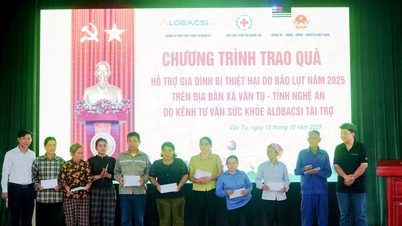

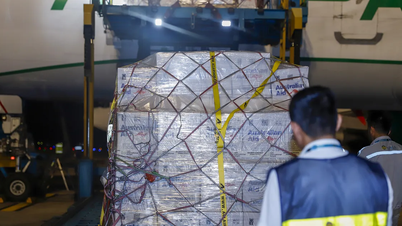

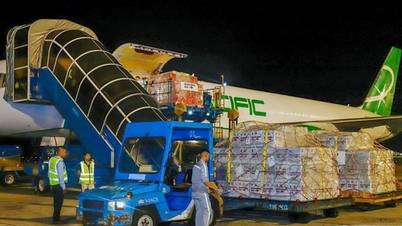

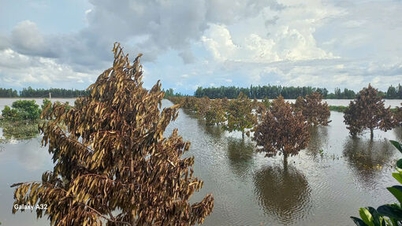

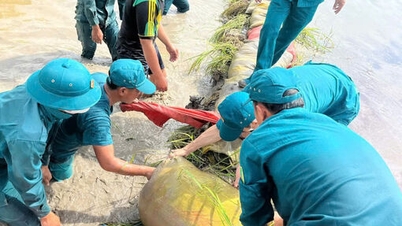




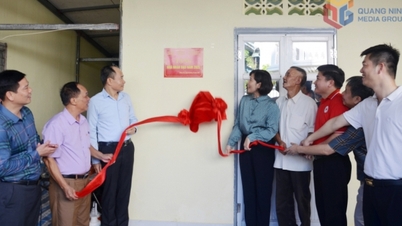

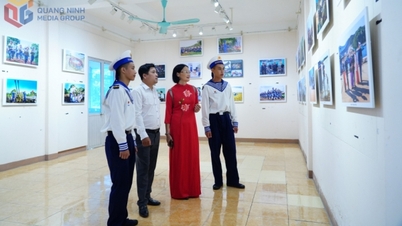









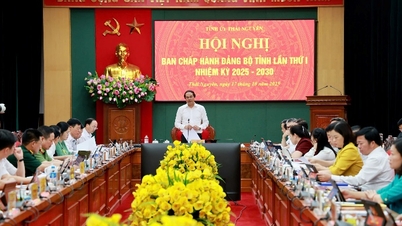
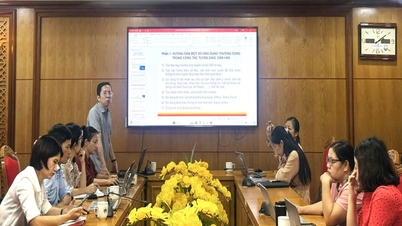


![[Photo] Nhan Dan Newspaper launches “Fatherland in the Heart: The Concert Film”](https://vphoto.vietnam.vn/thumb/1200x675/vietnam/resource/IMAGE/2025/10/16/1760622132545_thiet-ke-chua-co-ten-36-png.webp)


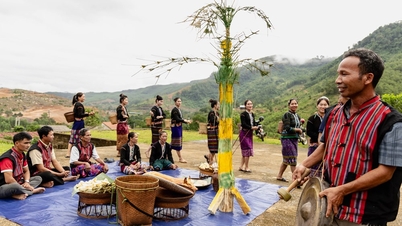



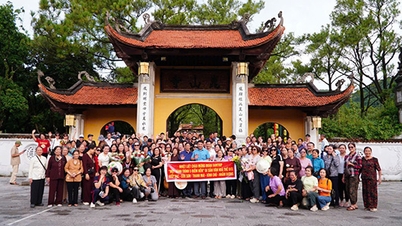


















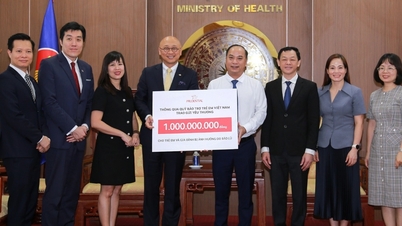

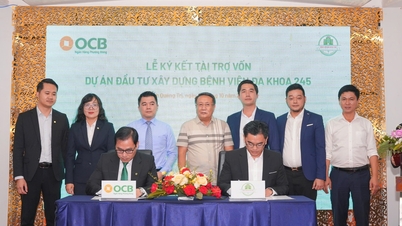







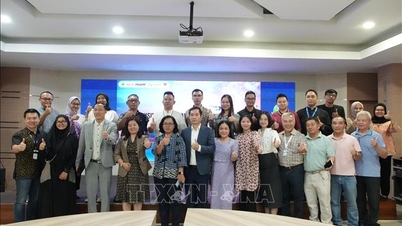

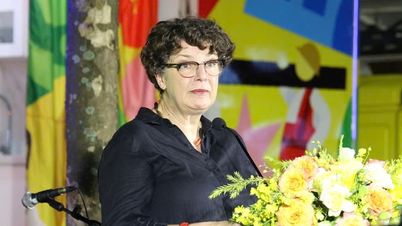





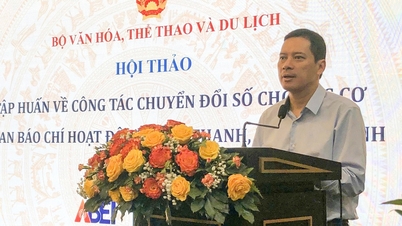


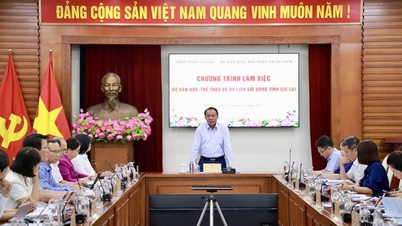
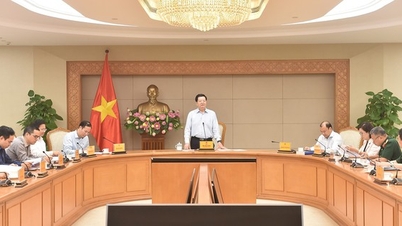
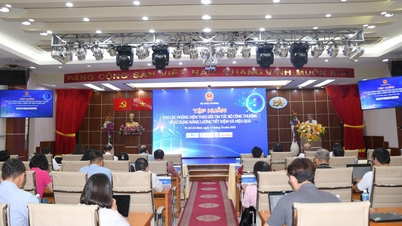

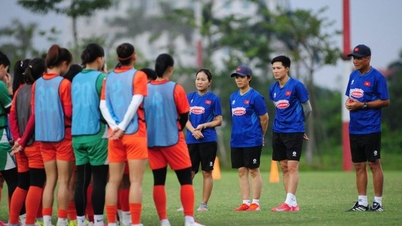
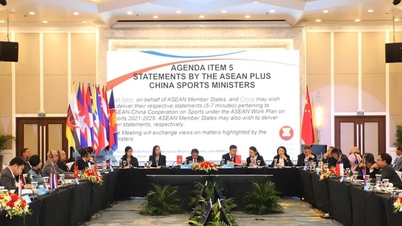



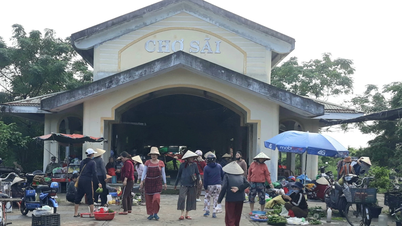

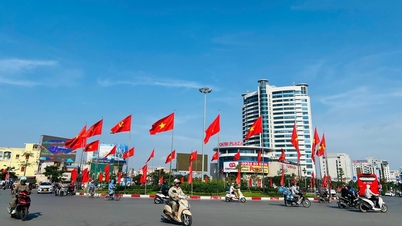

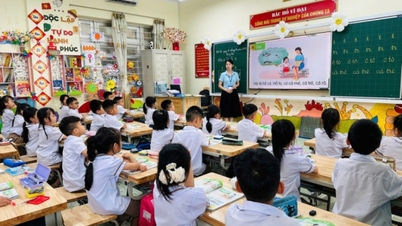
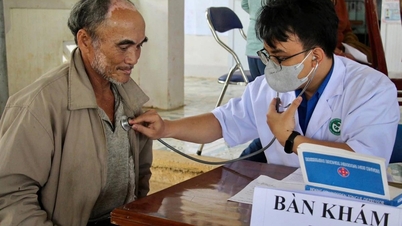















Comment (0)